Lawyers Near MeDistrict of ColumbiaWashingtonNorthwest WashingtonNew Jersey Avenue Northwest
601 New Jersey Ave NW Nwnj-726, Washington, DC 20580, USA
The people I dealt with were courteous and to the point.
In the dynamic economic landscape of Washington D.C., consumers and businesses alike face a myriad of interactions, from purchasing goods and services to navigating complex market rules. Protecting these interactions from unfair, deceptive, or fraudulent practices is paramount, and at the forefront of this effort is a crucial federal agency: the Federal Trade Commission (FTC). While not a "lawyer" in the traditional sense of a private attorney representing individual clients, the FTC acts as the nation's primary consumer protection agency, functioning as a powerful legal advocate for the public good, with broad enforcement powers to ensure fair competition and protect consumers from harm.
The Federal Trade Commission plays a vital role in the daily lives of D.C. residents and businesses, even if its presence isn't always immediately visible. Its mission encompasses two core areas: preventing anticompetitive business practices in the marketplace and safeguarding consumers from deceptive and unfair commercial acts. This overview will shed light on the FTC's critical functions, its accessible location within the District of Columbia, the types of assistance and resources it provides, and why understanding its role is so beneficial for anyone in the D.C. area, especially when confronted with issues like scams. The FTC serves as a powerful guardian, working to ensure that the marketplace remains honest and competitive for everyone.
Its commitment extends to educating the public about common scams, providing avenues for reporting fraud, and enforcing laws that promote truth in advertising, protect consumer data, and ensure fair business practices. In a diverse and bustling city like Washington D.C., where a wide range of commercial activities occur daily, having a robust federal entity like the FTC watching out for consumer interests and maintaining market integrity is an indispensable asset for the local community.
The Federal Trade Commission (FTC) maintains a prominent and accessible presence in Washington D.C., making it a central point of contact for federal consumer protection efforts. Its official address is 601 New Jersey Ave NW Nwnj-726, Washington, DC 20580, USA. This strategic location places the FTC building within a key governmental and institutional area of the city.
The 601 New Jersey Ave NW address is advantageous due to its connectivity and proximity to various transportation options. While not immediately adjacent to a Metro station, it is within a reasonable walking distance from several, including Judiciary Square (Red Line) and Gallery Place-Chinatown (Red, Green, Yellow Lines), making it accessible via D.C.'s extensive public transportation network. Numerous bus routes also serve the surrounding area, further enhancing accessibility for residents across the District. For those who may drive, parking options, including commercial garages, are available in the vicinity, though, as with many areas in downtown D.C., public transit is often the most convenient method of arrival. This accessibility ensures that individuals and organizations seeking to report issues or learn more about consumer protection can reach the FTC's physical location if needed, although much of their interaction can often occur online or via phone.
Being located in Washington D.C. allows the FTC to effectively collaborate with other federal agencies, Congress, and various legal and policy organizations that are also situated within the capital. This geographical proximity facilitates swift coordination on regulatory matters, consumer complaints, and enforcement actions, ultimately benefiting the citizens and businesses of the District of Columbia and the nation as a whole. Its presence underscores the federal government's commitment to consumer welfare and fair competition directly within the nation's capital.
While the Federal Trade Commission (FTC) is not a "lawyer" in the sense of providing individual legal representation, it offers a broad spectrum of services and functions that act as a powerful legal and protective resource for consumers and businesses in Washington D.C. and across the nation. Its core services are rooted in its dual mission: consumer protection and competition advocacy.
Consumer Protection Enforcement: The FTC investigates and brings legal actions against companies and individuals engaged in unfair, deceptive, or fraudulent business practices. This includes combating telemarketing fraud, deceptive advertising, data security breaches, and identity theft. When the FTC acts, it is essentially providing a legal service to the public by enforcing laws on their behalf.
Fraud and Scam Prevention: The agency is a leading source for information on how to recognize, avoid, and report scams, including pervasive issues like the "gift card scam" mentioned in reviews. They issue alerts, publish guides, and offer resources to empower consumers to protect themselves from financial harm.
Identity Theft Assistance: The FTC operates IdentityTheft.gov, a comprehensive resource for victims of identity theft. It provides a personalized recovery plan, helps individuals report identity theft, and offers guidance on how to fix their credit and deal with affected accounts.
Antitrust Enforcement: The FTC works to prevent anticompetitive mergers and business practices that could lead to higher prices, reduced quality, or less innovation. Through legal challenges and reviews, it promotes fair competition in various industries, benefiting consumers through competitive markets.
Privacy and Data Security: The Commission enforces laws protecting consumer privacy and ensuring companies adequately secure personal data. This includes addressing issues related to online tracking, mobile privacy, and data breaches.
Business Guidance and Compliance: The FTC provides extensive guidance to businesses to help them understand and comply with consumer protection and antitrust laws. This includes advice on advertising, marketing, and privacy practices, aiming to prevent violations before they occur.
Consumer Education: A significant part of the FTC's work involves educating the public. They produce free educational materials, host events, and disseminate information through various channels to help consumers make informed decisions and understand their rights.
In essence, the FTC functions as a collective legal representative for consumers, addressing systemic issues and enforcing laws to create a fairer and safer marketplace for everyone. For D.C. locals, it’s a direct conduit to federal resources for consumer complaints and education.
The Federal Trade Commission (FTC) possesses several key features and highlights that underscore its critical role and effectiveness in serving the public, particularly for those in Washington D.C.:
Dual Mandate (Consumer Protection & Competition): A defining feature of the FTC is its unique dual mandate to protect consumers and promote competition. This comprehensive approach means it tackles issues from both angles, ensuring a fair and dynamic marketplace where businesses compete fairly and consumers are not misled or exploited.
Broad Enforcement Powers: The FTC has significant legal authority to investigate and prosecute companies and individuals that violate consumer protection or antitrust laws. This includes issuing cease-and-desist orders, levying civil penalties, and obtaining restitution for victims. This powerful enforcement capability provides a strong deterrent against unlawful business practices.
Focus on Emerging Threats: The Commission is highly proactive in addressing new and evolving threats to consumers and competition, such as digital scams, deceptive practices in online advertising, and challenges in the tech industry. Their vigilance helps protect consumers from novel forms of fraud, including contemporary issues like the "gift card scam" mentioned in public feedback.
Commitment to Public Education: A core highlight of the FTC's work is its extensive consumer education initiatives. They provide free, reliable resources, including consumer alerts, articles, and websites (like IdentityTheft.gov), to empower individuals with the knowledge to protect themselves and make informed decisions. The review noting "The people I dealt with were courteous and to the point" suggests a positive public interaction with their informative and helpful staff.
Central D.C. Location: Located at 601 New Jersey Ave NW, the FTC is strategically positioned in Washington D.C., facilitating close collaboration with other federal agencies, Congress, and legal stakeholders. This central presence enhances its ability to coordinate nationwide consumer protection efforts and respond swiftly to market developments.
Responsive to Public Complaints: The FTC maintains robust systems for consumers to report fraud, scams, and unfair business practices. These complaints are vital as they inform the FTC’s enforcement priorities and investigations, demonstrating the agency's responsiveness to public feedback and real-world issues like the mentioned "gift card scam."
These features collectively highlight the FTC's indispensable role as a protective and educative force, making it a critical resource for individuals and businesses in the District of Columbia and across the nation.
As a federal government agency, the Federal Trade Commission (FTC) does not offer "promotions or special offers" in the traditional commercial sense. Its services are not commercial products or fee-based; rather, they are part of its public mandate to protect consumers and promote fair competition.
Instead of promotions, the FTC provides a wealth of free resources and services to the public. These include:
Free Consumer Information and Alerts: The FTC regularly publishes articles, blog posts, and consumer alerts on various topics, including common scams (like the "gift card scam"), identity theft prevention, and consumer rights. These resources are readily available on their website (ftc.gov) and through their social media channels, at no cost.
Free Identity Theft Recovery Tools: IdentityTheft.gov is a free online resource provided by the FTC that offers personalized recovery plans and guides victims through the steps necessary to report and resolve identity theft issues.
Free Complaint Submission: Consumers can file complaints about fraud, scams, or unfair business practices directly with the FTC online or by phone, free of charge. These complaints are crucial for informing the FTC's investigations and enforcement actions.
Free Business Guidance: The FTC also offers free guides and resources for businesses to help them understand and comply with consumer protection laws, preventing violations and fostering a fair marketplace.
While there are no "discounts" or "deals," the value of the information, protection, and enforcement services provided by the FTC is immeasurable for consumers and businesses alike. Their mission is to serve the public interest, and all their resources are provided as part of that core function.
For those in the District of Columbia seeking to report a scam, learn about consumer protection, or access resources, the Federal Trade Commission (FTC) is readily available. Here is the direct contact information:
Address: 601 New Jersey Ave NW Nwnj-726, Washington, DC 20580, USA
Phone: (202) 326-2222
Mobile Phone: +1 202-326-2222
You can reach out to these numbers during standard business hours for general inquiries, to report a complaint, or to seek information. The FTC also maintains a comprehensive website, ftc.gov, which is an extensive online resource for consumers and businesses, providing a wealth of information, reporting tools, and educational materials. While direct visits to the physical office might be less common for routine inquiries given the agency's nature, the phone lines and online portal serve as the primary and most efficient points of contact for the public. The staff are noted in reviews as being "courteous and to the point," indicating a helpful and efficient interaction experience.
For residents and businesses in the District of Columbia, the Federal Trade Commission (FTC) is an indispensable and highly suitable resource, acting as a crucial legal guardian for consumer rights and fair market practices. Its suitability for locals is multifaceted, stemming from its direct relevance to daily economic interactions within the nation’s capital.
Firstly, the FTC’s physical location at 601 New Jersey Ave NW places it strategically within Washington D.C. While many interactions with the FTC occur online or over the phone, its D.C. presence signifies its direct engagement with the federal policy-making and enforcement environment. This central location ensures it can effectively collaborate with other governmental bodies, thereby enhancing its capacity to serve and protect consumers and businesses within the District and nationwide. Its accessibility, albeit primarily digital and telephonic, ensures that local concerns can directly inform national enforcement efforts.
Secondly, and most importantly, the FTC’s core mission directly benefits D.C. locals. In a bustling urban environment with diverse commercial activities, consumers are constantly exposed to various market dynamics, including potential scams and deceptive practices. The FTC acts as a vital bulwark against such issues, providing a clear avenue for reporting concerns – whether it's a "gift card scam" as mentioned in a review, misleading advertising, or identity theft. The agency’s proactive alerts and educational resources empower locals with the knowledge to identify and avoid common frauds, saving them from financial and emotional distress. The review highlighting courteous and to-the-point staff further indicates that the FTC is approachable and helpful when locals seek assistance.
Furthermore, the FTC’s role in promoting fair competition directly impacts the local economy of D.C. By preventing monopolies and ensuring businesses compete on a level playing field, the FTC helps foster a market where consumers have more choices, better quality goods and services, and fair prices. This creates a healthier economic environment for both residents and local businesses striving to operate ethically.
In conclusion, the Federal Trade Commission, while not a private law firm, serves as a powerful and essential "lawyer" for the collective interests of D.C. locals. Its strategic location, comprehensive consumer protection and competition advocacy services, and dedication to public education make it an invaluable resource for navigating the complexities of the modern marketplace, ensuring a safer and fairer environment for everyone in the District of Columbia.
601 New Jersey Ave NW Nwnj-726, Washington, DC 20580, USA
The people I dealt with were courteous and to the point.
Apr 18, 2023 · Jason MannGift card scam
Aug 24, 2023 · Bryan UrizarScam!!! Stay away!!!!
Apr 16, 2024 · Steve KantarovichPoor
Dec 13, 2022 · Isaac CarballoPoor
Dec 13, 2022 · Isaac Carballo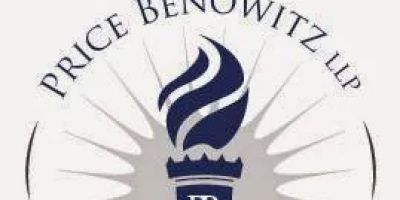
10 G St NE, Washington, DC 20002, USA
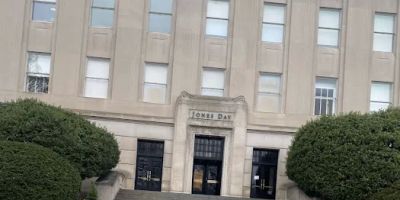
51 Louisiana Ave NW, Washington, DC 20001, USA
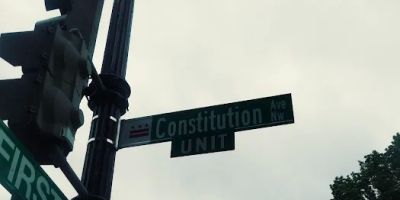
101 Constitution Ave. NW # 675E, Washington, DC 20001, USA

455 Massachusetts Ave NW, Washington, DC 20001, USA
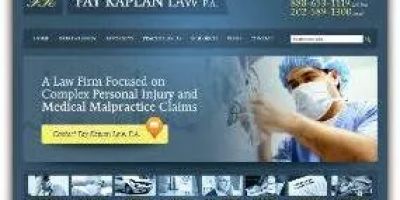
777 6th St NW #410, Washington, DC 20001, USA
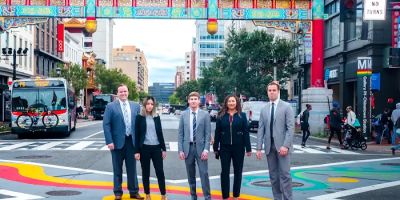
519 H St NW, Washington, DC 20001, USA
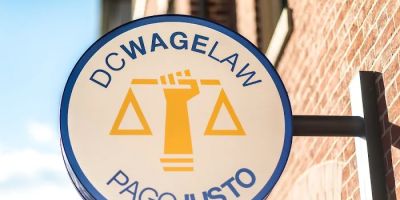
519 H St NW, Washington, DC 20001, USA

503 D St NW, Washington, DC 20001, USA

503 D St NW Suite 300, Washington, DC 20001, USA
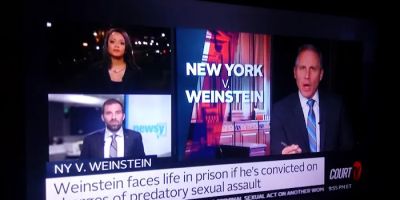
600 F St NW Suite 300, Washington, DC 20004, USA
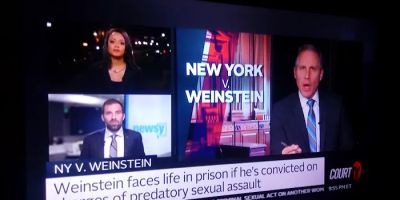
600 F St NW Suite 300, Washington, DC 20004, USA

600 F St NW Suite 301, Washington, DC 20004, USA
